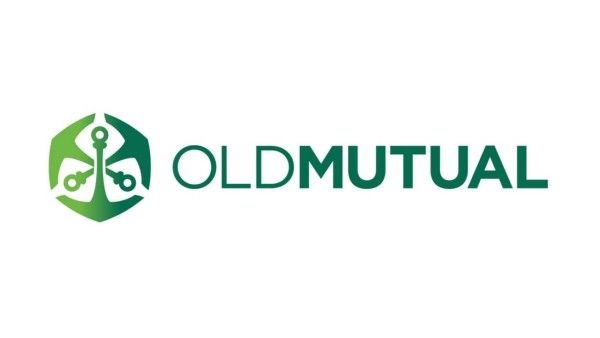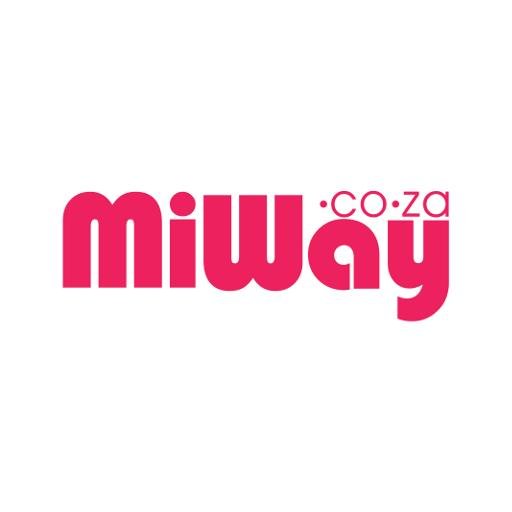Health insurance is a crucial aspect of healthcare in South Africa, providing individuals and families with financial protection against the high costs of medical treatment. Choosing the right health insurance plan that meets one’s specific needs and budget can be difficult with various options available. This article aims to provide an overview of health insurance in South Africa, including the types of plans available, the benefits and drawbacks of each, and how to choose the best plan for one’s individual circumstances.
In South Africa, there are two main types of health insurance plans: medical aid and health insurance. Medical aid is regulated by the Council for Medical Schemes (CMS) and is designed to provide comprehensive cover for medical expenses, including hospitalization, consultations with specialists, and medication. On the other hand, health insurance is not regulated by the CMS and typically offers more limited coverage, such as hospitalization and emergency care.
When choosing a health insurance plan in South Africa, there are several factors to consider, including the level of coverage required, the cost of premiums, and the insurer’s reputation. It is also important to consider any pre-existing medical conditions, as some plans may exclude coverage or charge higher premiums. By carefully assessing one’s needs and comparing available options, individuals and families can select a health insurance plan that provides the necessary protection without breaking the bank.

Overview of Health Insurance in South Africa
South Africa has a two-tier healthcare system consisting of public and private healthcare sectors. The public sector provides healthcare services to most of the population, while the private sector caters to those who can afford it. The South African government is committed to providing universal healthcare coverage through the National Health Insurance (NHI) scheme.
Private insurance companies primarily offer health insurance in South Africa, with some companies providing international health insurance for expats. Some of the largest private health insurance companies in South Africa include Allianz Care and Cigna Global. The cost of health insurance varies depending on the level of coverage and the insurance company.
As an expat living in South Africa, it is important to note that you may have to pay towards public healthcare. The NHI scheme is designed to provide access to quality, affordable personal health services for all South Africans based on their health needs, irrespective of their socio-economic status. The NHI scheme is currently in the second year of Phase 2 implementation (2018-2022), focusing on improving primary healthcare services.
The South African government has made significant strides in improving healthcare services in the country, including increasing the number of healthcare professionals, expanding healthcare infrastructure, and implementing health policies to reduce the disease burden. The government is committed to achieving universal healthcare coverage through the NHI scheme, providing all South Africans access to quality healthcare services.
Types of Health Insurance Plans
Regarding health insurance in South Africa, two main types of plans are available: medical aid and hospital plans. Each type of plan offers different levels of coverage and benefits, so it is important to understand the differences between them before making a choice.
Medical Aid Plans
Medical aid plans are also known as comprehensive health insurance plans. These plans offer the most extensive coverage, including access to private hospitals, specialist care, and chronic medication coverage. Medical aid plans are generally more expensive than hospital plans but offer a wider range of benefits.
There are four levels of medical aid coverage available in South Africa: comprehensive, network, hospital, and restricted. The level of coverage you choose will determine the cost of your premiums.
Hospital Plans
Hospital plans are the most basic form of health insurance in South Africa. These plans only cover medical procedures conducted in a hospital, including emergencies and admissions through casualty. Hospital plans do not cover specialist care or chronic medication.
One of the main benefits of hospital plans is that they are generally more affordable than medical aid plans. However, it is important to note that hospital plans do not offer the same level of coverage as medical aid plans.
When choosing a health insurance plan in South Africa, it is important to consider your individual needs and budget. A medical aid plan may be your best option if you require access to specialist care or chronic medication. However, a hospital plan may be a better choice if you seek more affordable hospital cover.
Role of Private and Public Healthcare
South Africa has a dual healthcare system with a public and private sector. The public sector is funded through the national fiscus, while individuals or employers support the private sector. The National Health Insurance (NHI) is a health financing system designed to pool funds to provide access to quality, affordable personal health services for all South Africans based on their health needs, irrespective of their socio-economic status.
Private healthcare providers in South Africa offer quality care and services to those who can afford it. Some of the largest private healthcare providers in South Africa include Allianz Care and Cigna Global. Private hospitals in South Africa have state-of-the-art facilities and a nationwide network of healthcare providers to ensure quality patient care.
On the other hand, the public sector provides healthcare services to those who cannot afford private healthcare. The public sector provides healthcare services to most of the population. However, the public sector is often plagued by inadequate funding, lack of resources, and poor management, which results in long waiting times and poor quality of care.
For National Health Insurance to succeed in South Africa, a meaningful collaboration must occur between private and public healthcare providers. The private sector can provide much-needed resources and expertise to the public sector, while the public sector can provide access to healthcare services for those who cannot afford it.
In conclusion, private and public healthcare sectors have a role to play in providing quality healthcare services to the people of South Africa. The National Health Insurance system aims to bridge the gap between the two sectors and provide all South Africans access to quality healthcare services.
Health Insurance Providers in South Africa
South Africa has a number of health insurance providers that offer various medical coverage options to individuals and families. These providers offer various plans catering to different budgets and healthcare needs.
One of the leading providers of medical coverage in South Africa is EssentialMED. They offer affordable health insurance and various plans providing essential healthcare solutions. Another provider that aims to make healthcare accessible to all South Africans is Affinity Health. They offer healthcare plans designed to cater to different financial and health needs.
HealthGroup is another provider that offers a range of health insurance plans. Their Essential Primary Plus plan provides essential healthcare solutions to individuals and families. They offer a choice between their Day-to-Day Benefit Option, Emergency and Accident Benefit Option, or their Day-to-Day, Emergency and Accident Benefit Option.
Sanlam, a financial services company, has partnered with two of South Africa’s most established medical schemes, Bonitas and Fedhealth, to offer their clients medical aid and gap cover. With the rising medical expenses, planning for health is essential and can impact even the most meticulously crafted long-term financial plan.
In addition to these providers, other health insurance companies in South Africa, such as African Unity Life, offer medical cover options to individuals and families. It is important to research and compare different plans before choosing a provider to ensure that the plan selected meets one’s healthcare needs and budget.
Coverage and Benefits
Regarding health insurance in South Africa, there are two main categories: hospital plans and full medical scheme benefits. Hospital plans are the most basic type of health coverage and often the most affordable. Full medical scheme benefits, on the other hand, provide comprehensive health insurance.
Day-to-Day Medical Expenses
Most health insurance plans in South Africa cover day-to-day medical expenses. This includes GP visits, chronic medication, and medication for acute illnesses. Some plans may also cover dentistry and optometry, pathology, and radiology.
Specialized Treatments
If you require specialized treatments, such as seeing a specialist or undergoing surgery, your health insurance plan may cover some or all costs. However, checking your policy to see what is covered and what is not is important.
In the case of accidents or illness, health insurance can provide financial protection and peace of mind. Dread disease cover is also available, which provides a lump sum payment if you are diagnosed with a serious illness such as cancer.
Maternity benefits are also available on some health insurance plans, covering pre- and post-natal care and the cost of giving birth.
Overall, health insurance in South Africa can provide valuable coverage and benefits for a wide range of medical costs and treatments. It is important to carefully review your policy to understand what is covered and what is not and choose a plan that meets your needs and budget.
Cost and Affordability
Health insurance can be a significant expense for individuals and families in South Africa. However, it is crucial to have adequate coverage to protect against unexpected medical costs. When considering health insurance plans, cost and affordability are important factors.
Fortunately, there are several options for affordable health insurance in South Africa. Many insurance providers offer budget-friendly plans that provide essential coverage at a lower cost. These plans may have higher deductibles or co-payments, but they can still provide valuable protection against major medical expenses.
Premiums for health insurance plans in South Africa can vary widely depending on several factors, including age, health status, and the level of coverage required. Shopping around and comparing different plans is essential to find the most cost-effective option.
Some insurance providers also offer savings on premiums for individuals who maintain a healthy lifestyle. For example, some plans may offer discounts for non-smokers or individuals who exercise regularly. These savings can help make health insurance more affordable for those on a tight budget.
In addition to considering the cost of premiums, it is also important to consider the potential savings that health insurance can provide. With adequate coverage, individuals and families can avoid the high costs of medical procedures, hospital stays, and prescription medications. This can ultimately save money in the long run and provide peace of mind.
While health insurance can be a significant expense, affordable options are available in South Africa. By comparing plans, considering potential savings, and maintaining a healthy lifestyle, individuals and families can find the right coverage to fit their budget and protect against unexpected medical costs.
The Role of Technology in Health Insurance
Technology plays a significant role in delivering health insurance services in South Africa. It has revolutionized the way health insurance companies operate, making it easier for them to offer innovative solutions that meet the needs of their customers. This section will explore the various ways in which technology has impacted health insurance in South Africa.
Customization
One of the most significant benefits of technology in health insurance is the ability to tailor policies to meet customers’ specific needs. With advanced algorithms and data analytics, insurance companies can gather information about their customers’ health and lifestyle habits, which they use to create personalized policies. This approach ensures that customers get the coverage they need and helps insurance companies reduce their risks.
Control
Technology has also given health insurance companies greater control over their operations. With mobile apps and online portals, customers can manage their policies, make claims, and access information about their coverage at any time. This has reduced the workload on insurance companies’ call centres, freeing up staff to focus on other critical tasks.
Innovative Apps
Health insurance companies are increasingly developing apps that help customers to manage their health. These apps provide users with information about their health and lifestyle, such as their exercise routines, diet, and sleep patterns. They also offer helpful tips and advice on how to improve their health. Some apps even allow users to track their progress towards their health goals, making staying motivated easier.
Improved Efficiency
Technology has also improved the efficiency of health insurance companies. With automated systems, insurance companies can process claims faster, reducing the time it takes for customers to receive their payouts. This has improved customer satisfaction and reduced the workload on insurance company staff.
In conclusion, technology has played a significant role in delivering health insurance services in South Africa. It has allowed insurance companies to offer innovative solutions that meet the needs of their customers while improving their efficiency and reducing their risks. With the continued development of new technologies, health insurance companies will likely remain at the forefront of innovation in the healthcare industry.
Choosing the Right Health Insurance Plan
When choosing a health insurance plan in South Africa, it is important to consider several factors to ensure that it meets your needs and provides adequate coverage. Here are some key considerations to keep in mind:
Choice of Plans
Several health insurance plans are available in South Africa, including medical aid schemes, hospital plans, and gap cover. It is important to choose a plan that suits your needs and budget. Medical aid schemes offer comprehensive coverage but can be expensive, while hospital plans are more affordable but offer limited coverage. Gap cover can provide additional protection for medical expenses not covered by your primary health insurance plan.
Coverage
When choosing a health insurance plan, it is important to consider the level of coverage provided. Look for a plan that covers a wide range of medical services, including hospitalization, doctor’s visits, and prescription medications. It is also important to check whether the plan covers pre-existing conditions, chronic illnesses, and emergency medical services.
Risk
Consider your personal health risks when choosing a health insurance plan. You may need a more comprehensive coverage plan if you have a pre-existing medical condition or a family history of certain illnesses. It is also important to consider your lifestyle and any activities that may put you at risk of injury or illness.
Quality Healthcare
Choose a health insurance plan that provides access to quality healthcare providers. Look for a plan with a wide network of doctors, hospitals, and clinics. You may also want to consider the reputation and track record of the insurance provider.
In conclusion, choosing the right health insurance plan in South Africa requires careful consideration of several factors. By taking the time to research and compare different plans, you can find a plan that meets your needs and provides adequate coverage.



